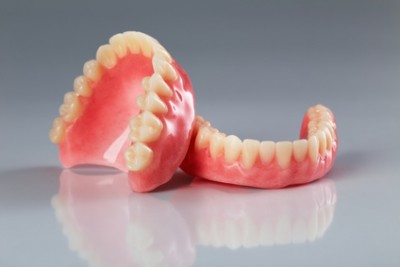A Short Guide for Dentures
 Dentures are oral prosthetics used to replace broken or disease-infested teeth and gums. The beneficial implications of dentures are many. They help in restoring peoples’ confidence by restoring their natural smile. Installation of dentures in the place of missing or damaged teeth is also imperative to maintain the anatomical features of the face. Most importantly, dentures do up the basic oral function of chewing and breaking down the food, which is very essential for the healthy nourishment of the body. Most of the dentures are not permanently fastened to the gum line so that they can easily be unhinged for cleaning and before going to bed.
Dentures are oral prosthetics used to replace broken or disease-infested teeth and gums. The beneficial implications of dentures are many. They help in restoring peoples’ confidence by restoring their natural smile. Installation of dentures in the place of missing or damaged teeth is also imperative to maintain the anatomical features of the face. Most importantly, dentures do up the basic oral function of chewing and breaking down the food, which is very essential for the healthy nourishment of the body. Most of the dentures are not permanently fastened to the gum line so that they can easily be unhinged for cleaning and before going to bed.
Let’s delve into some basic details of dentures so that you know must know about this dental prosthetic beforehand in case you are going to get one.
Partial Dentures
In cases where more than one tooth is missing and the surrounding teeth and gum are not strong enough to withstand other tooth replacement methods such as dental bridges, dentists go with partial dentures. The fitting of partial dentures is supported by the gum line. Surrounding natural teeth also help in keeping the partial denture in place.
Full Dentures
Full or complete dentures are designed to replace the entire natural upper and lower teeth assembly. Full dentures are usually recommended for those who have lost a large number of teeth to aging or some debilitating disease. Like partial dentures, they are also fitted on either of the gum lines and fastened in the place by adhesives or suction.
Immediate Dentures
These dental implants are transitional in nature. They are mostly used before the fitting of permanent partial and full dentures during the time when the natural gum line is healing from the process of tooth extraction. Immediate dentures can be used to up to six months.
Overdentures
Overdentures are modified dental implants different from traditional dentures that don’t replace the entire tooth. For that matter, they are not fitted on the gum line. Overdentures are also used in instances where traditional teeth prosthetics don’t sit well and start causing trouble for the patient.
Implant-Support Dentures
These types of dentures are attached with dental implants permanently fixed to the jawbone. Implant-support dentures mostly developed as the cast of a natural tooth crown.
Making of Dentures
Dentures used to be manufactured from polymer and porcelain. However, modern dentures are now manufactured from hard resins. The supportive denture structure is either made of the same material or a polymer for its flexibility in order to impeccably fix the denture in the position.
Cleaning is Equally Important
Dentures need daily cleaning just like regular teeth brushing because they are also prone to bacteria production and plaque formation. Unclean dentures can pose threat to the surrounding natural teeth and gums. Take out the denture, rinse it with water and then wash it or brush it with a prescribed denture cleaner. This should be carried out every day before going to bed in order to preserve the denture.
Are you in need of dentures or dental implants? Come to the office of Smile Brightly Dental in Warren, Michigan for more guidance. Give us a call us today at 586-573-7700.
